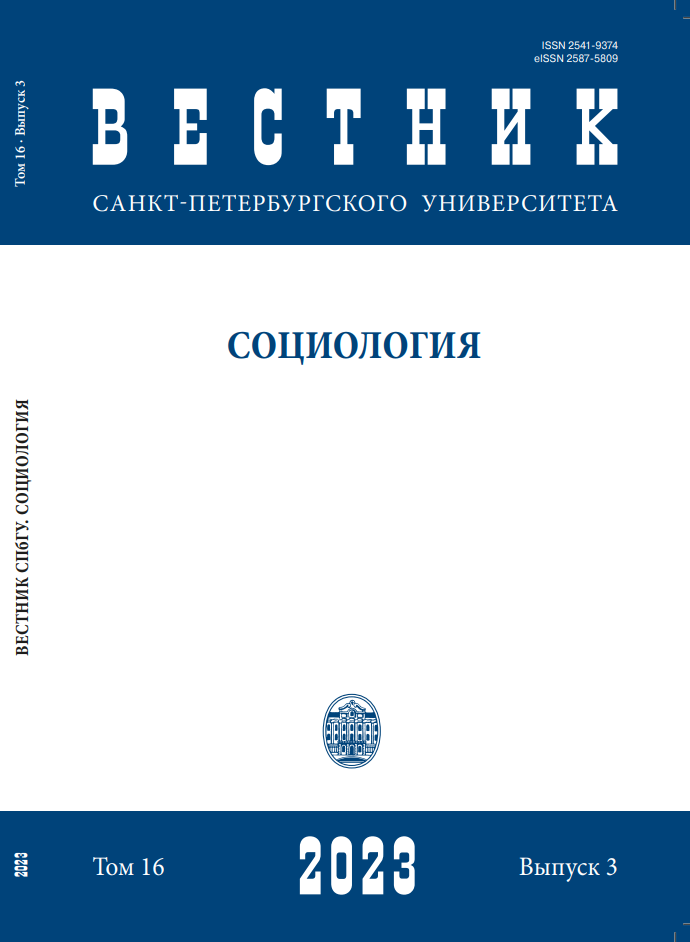A predictive and normative model for the “smart city” implementation concept in expert discourse
DOI:
https://doi.org/10.21638/spbu12.2023.306Abstract
The smart city concept strikes a discourse in the academic, media, political field in the present period. Discursive topics for that matter are the concept implementation model of choice determination, including its main structural parameters and the horizons of future develop-ment establishment. The challenge is the lack of a comprehensive approach to provide the effectiveness of social elements in the model of implementation of the concept of the smart city. The research issue includes an expert diagnosis parameter of the citizen as a subject. Set of parameters characterizing the social space of the city, namely, activity, identity, norms of trust and solidarity of the population, which together reflect the level of citizens’ subjectivity is proposed to take as a system indicator of the model of concept’s realization. The author model of the smart city concept implementation complements and expands the quadruplehelix model. The purpose of the work is aimed at predictive-normative model diagnostics
by the expert community of the city for its integration into the management practice. Representatives of authorities, businesses, non-profit organizations of six cities as experts (Tyumen, Tobolsk, Khanty-Mansiysk, Surgut, Salekhard, Novy Urengoy) evaluated the implementation, prospects of the approach in their cities and the possibility of including the subjective model in management practice. The survey uncovered some degree of contradictions in the positions of experts on the predictive and normative model for the concept’s implementation. Most experts admit the increasing city dwellers subjectivity, but do not see opportunities and conditions for new forms of its institutionalization. As whole expert attitudes are not predictive, but rather demonstrate a prolongation of the existing provisions and trends of urban development. Nevertheless, the study showed that the parameters of the subject model are not in conflict with the existing model and can be used in the practice of urban management.
Keywords:
smart city concept, citizen’s, subjectivity, identity, city development
Downloads
References
Downloads
Published
How to Cite
Issue
Section
License
Articles of "Vestnik of Saint Petersburg University. Sociology" are open access distributed under the terms of the License Agreement with Saint Petersburg State University, which permits to the authors unrestricted distribution and self-archiving free of charge.




